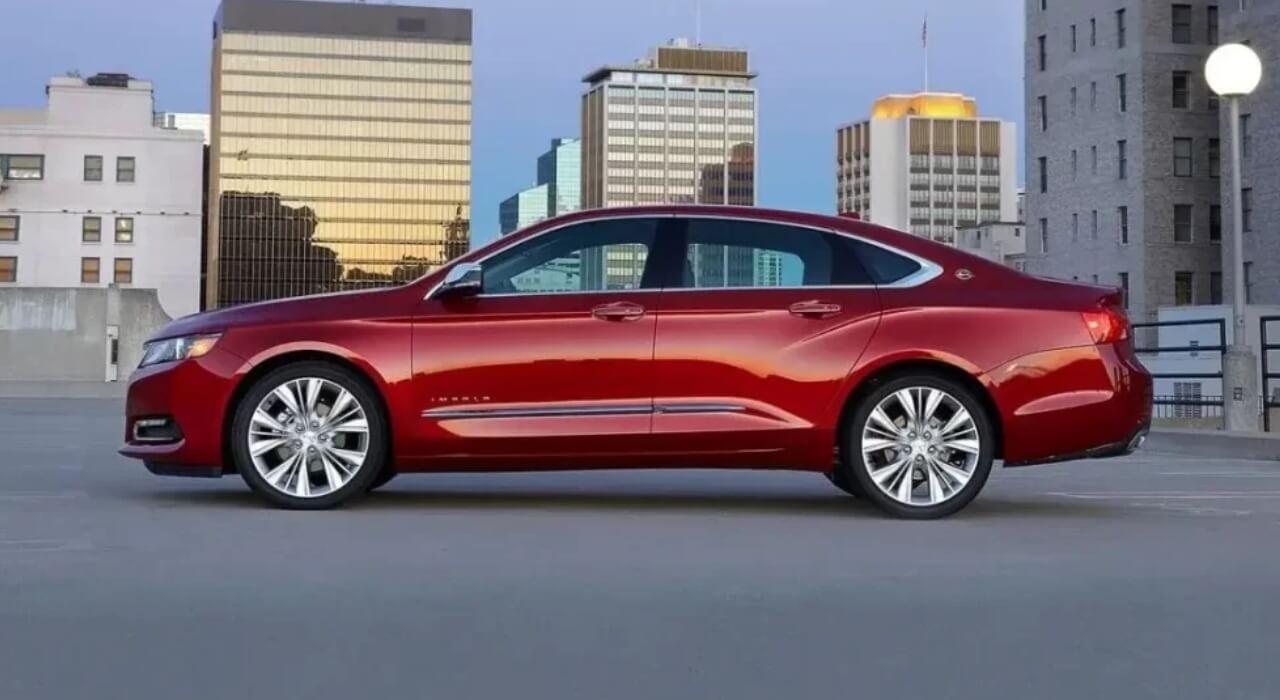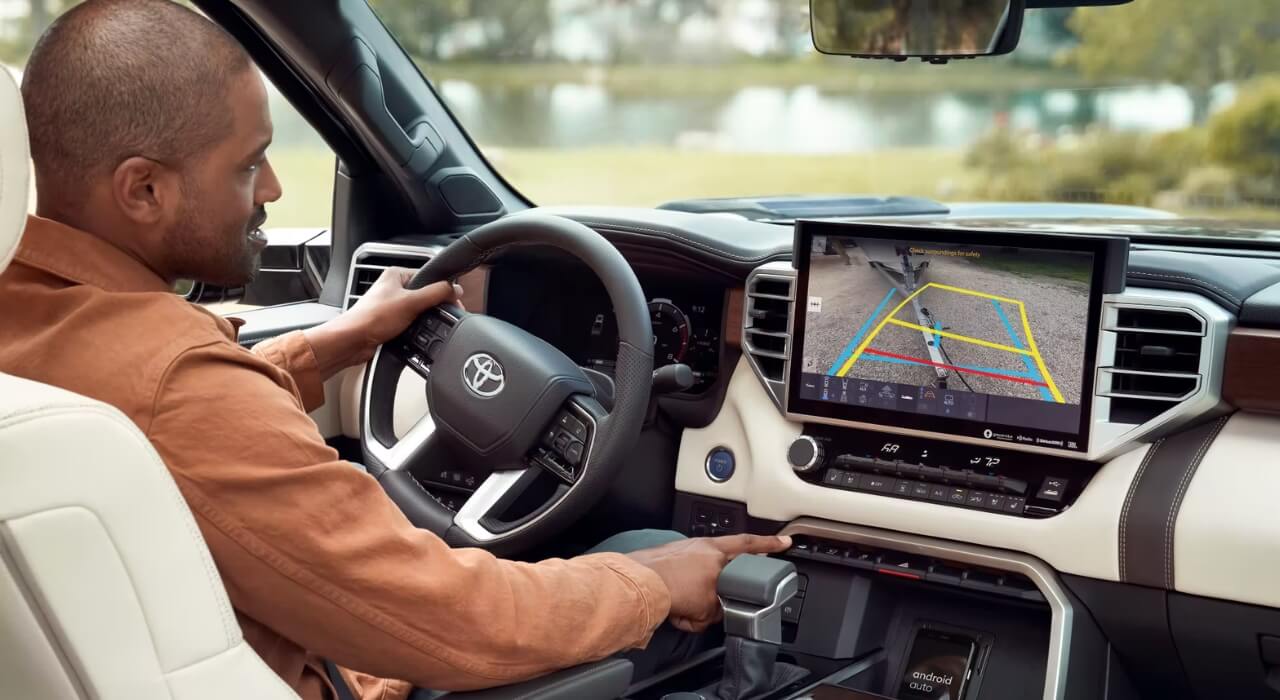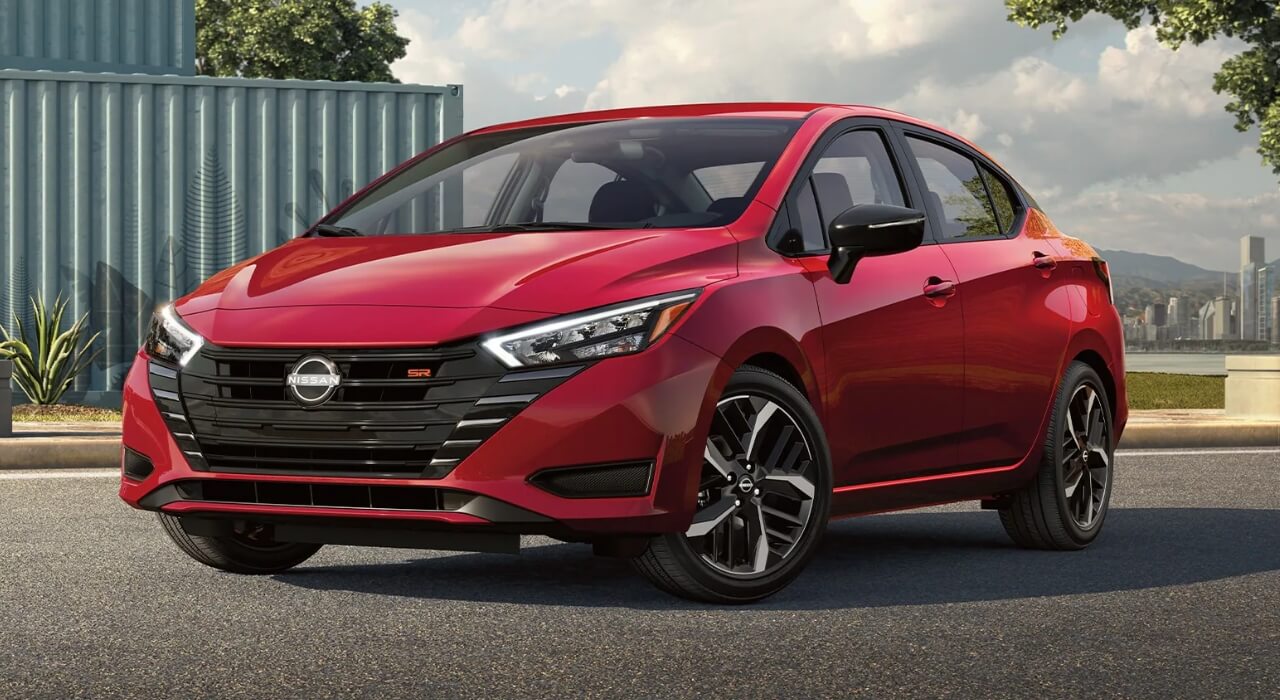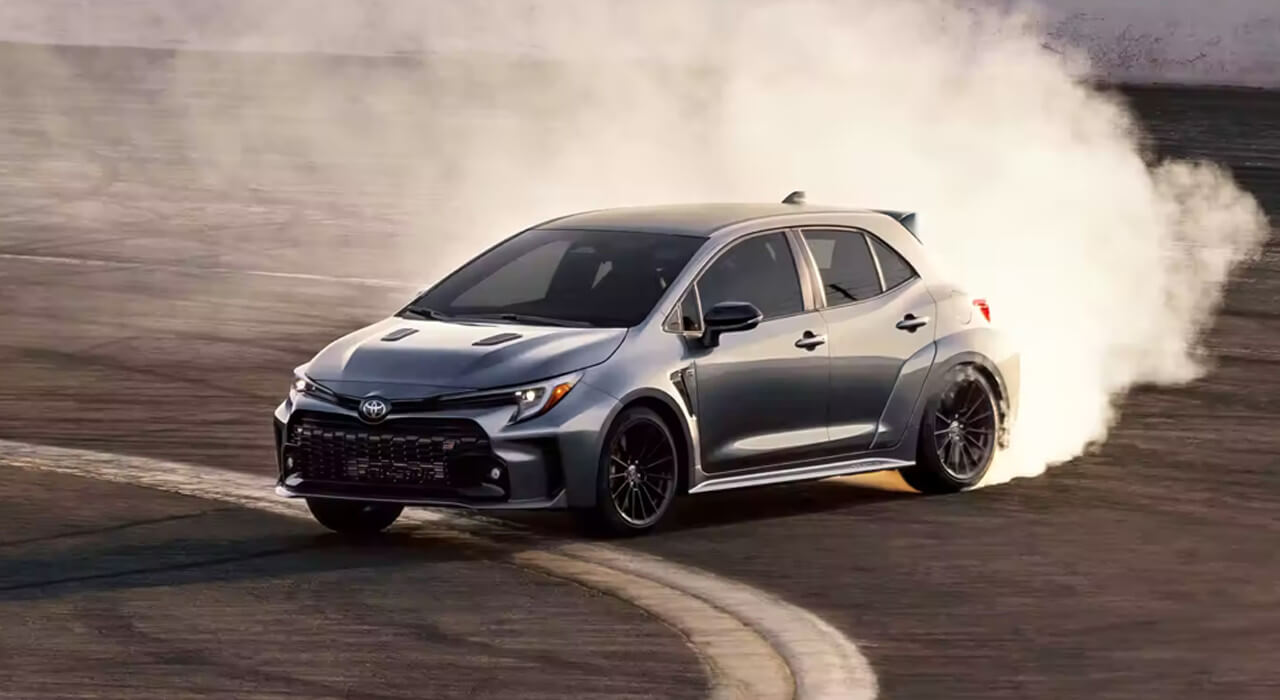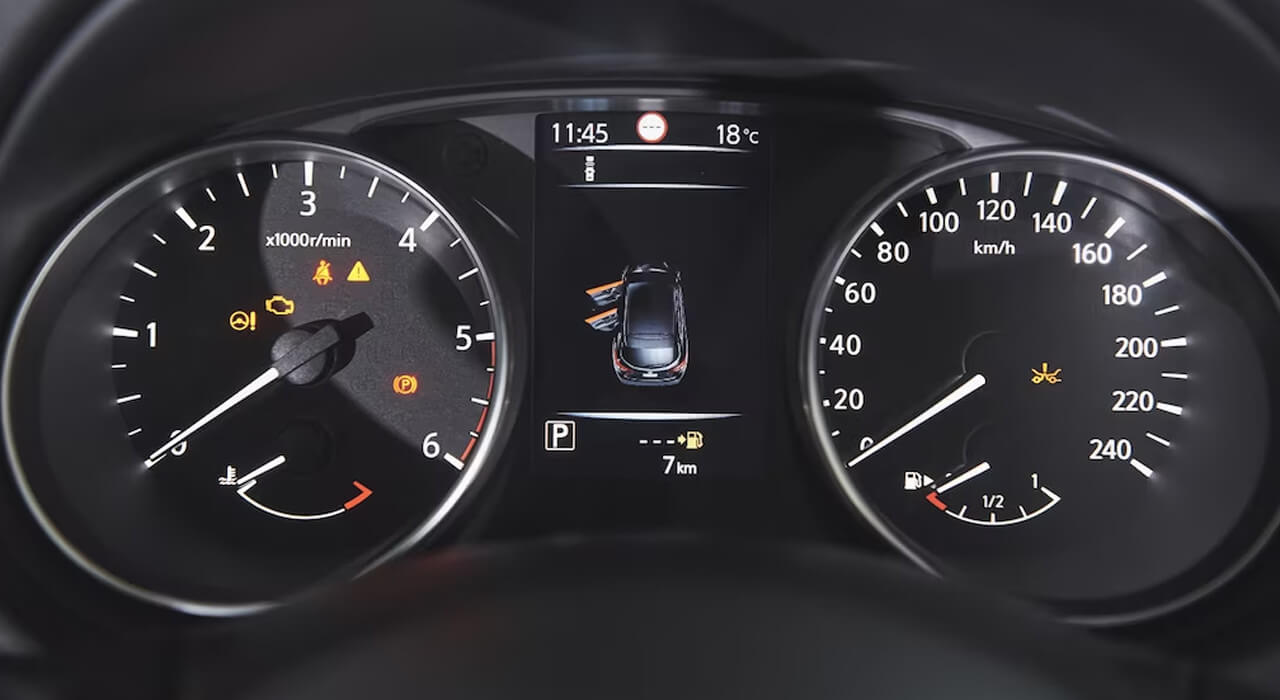Car jerks when accelerating at low speeds are a complicated situation that can occur at any time during driving. To drive safely, you should not ignore it and find the root cause and solution to prevent it as soon as possible.
Sitting in the driver’s seat and facing a car that shakes under acceleration is a really bad experience. Sometimes this alone can cause a motorist to temporarily lose control of their vehicle and put themselves in danger.
When this problem occurs, you may feel uncomfortable and wonder if there is something wrong with the vehicle. Cars are designed to run efficiently for a very long period and in virtually any situation.
Car vibration shows you have problems with everything from the spark plugs to the catalytic converter. In some cases, it could even be an indication that your vehicle’s transmission needs repair.
Read on to learn more about what to do about a car that shakes under acceleration in different situations.
What is Car Jerks When Accelerating?
When your car shakes, you often feel like it’s having trouble moving forward, even when you step on the gas pedal. Depending on the severity of the problem, your car may only feel a small jerk.
Sometimes, for a few seconds, you even hesitate, and then you put your foot on the pedal. If your car shakes when accelerating from a standstill, it makes it difficult to increase speed and can be particularly annoying in stop-and-go traffic.
However, if your car shakes while you are already driving at high speed, it can be dangerous as you suddenly slow down and a collision could occur. As you can imagine, it can be unsafe to drive your car if it judders under acceleration as it will be difficult to control.
Someone behind you could very well hit you if you’re suddenly not going as fast as you were before.
7 Top Causes of Car Jerks When Accelerating At Low Speed
Car vibration when accelerating is a common problem. It can occur in cars, motorcycles, trucks, and even boats. You should know how dangerous is car to jerk your engine. Here are some of the most common reasons cars can shake under acceleration and what you can do about it.
1. Clogged Fuel Injectors
Clogged fuel injectors are a very common problem that can cause many car problems. A clogged fuel injector can prevent your car from getting the fuel it needs to accelerate, causing your car to shake in the process.
If you hear your car’s engine stuttering, the fuel injectors may not be delivering enough fuel. To fix this you need to clean the injectors regularly. Using an injector cleaning solution could eliminate the vehicle shake problem.
2. Dirty Air Filter
To keep your car running at its best, it’s important to keep your air filter in top condition. Filters are used to prevent dirt and dust particles from entering the engine to enhance engine performance.
Therefore, it is important to check the condition of your current air filter. If it looks dirty, change it as soon as possible.
3. Damaged Spark Plugs
The combination of gasoline and air in your engine’s cylinders is ignited by your vehicle’s spark plugs. This starts the combustion that powers your car. If a spark plug fails, the engine cannot start properly because the spark is weak or does not fire at all.
As a result, your engine will not run smoothly and engine misfires will occur.
4. Damaged Acceleration Cables
A damaged throttle cable can cause jerks under acceleration and reduce engine response. It can cause a cold start problem so your car takes too long to start after being inactive for a long time.
It is advisable not to try to fix the problem yourself, but to seek the help of an auto mechanic who is well-versed in these repairs and other complicated aspects of engine maintenance.
Also Check:
5. Clogged Catalytic Converter
Your car’s catalytic converter is there to reduce your car’s emissions. But sometimes the fuel-air mixture going through your catalytic converter can clog it and cause your car to shake for a few moments.
6. Gas Line Fault
The fuel line is one of the most important parts for the proper functioning of your engine. It brings the fuel you need and directs it to where it is needed.
If something is wrong with this small part, such as a bad connection or a leak, your car’s performance will drop and could even cause your engine to blow up. It is also the top cause of car jerking.
7. Bad Transmission
As the part that connects the wheels to the motor, the transmission system is perhaps one of the main reasons for jerking when accelerating uphill. The transmission system matches the maneuverability of the wheel to the speed and torque of the engine.
So if you feel jerks when you accelerate, even when you change gears, the cause may be a bad gearbox.
How To Fix A Car Jerks When Accelerating From A Stop?
Properly diagnosing the problem is the first step to fixing it. While some causes of car vibration are easy to identify, others may require a more comprehensive approach or even the help of a professional mechanic.
Here is a step-by-step process to diagnose the specific cause of the problem:
Also Check:
A. Tune-Ups
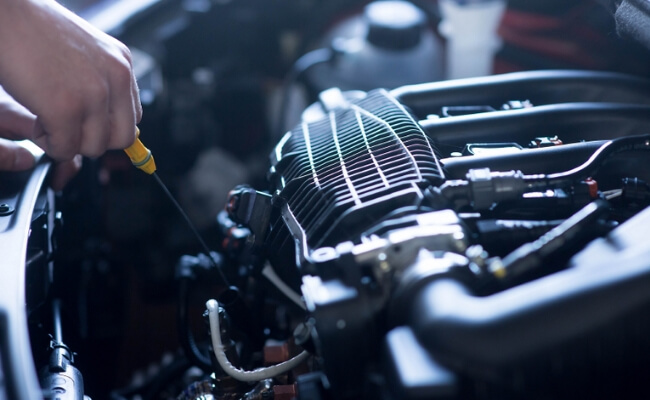
The best solution to avoid judder under acceleration is to perform routine maintenance. In this way, the vehicle does not jerk when accelerating. And if at some point the car starts to jerk, the next regular service will fix the problems.
B. Inspect Warning Lights
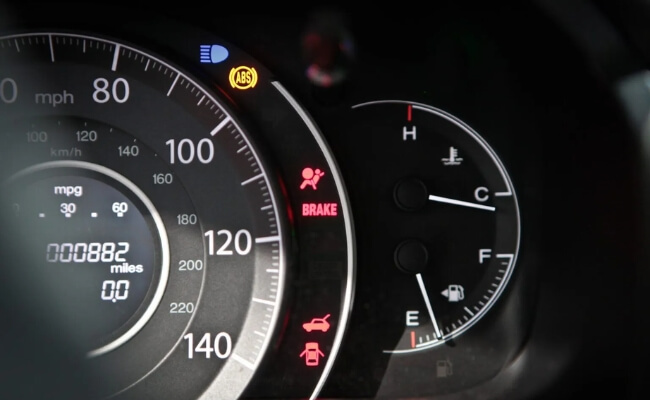
Also, check for any warning lights on your dash. If the “Check Engine” light or other warning light comes on, it may provide an indication of the system or component causing the problem.
C. Check Transmission System
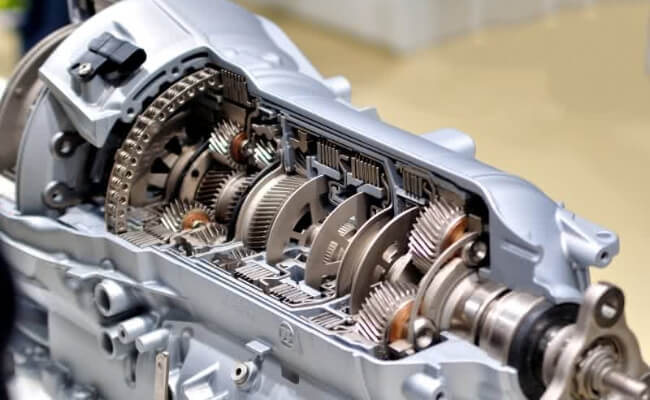
Check the level and color of your transmission oil. A low fluid level or dark fluid that looks burned can indicate a transmission problem. Also, pay attention to how your car shifts – difficulty shifting or engaging a gear can indicate a transmission problem.
Also Check:
D. Fuel System Repair
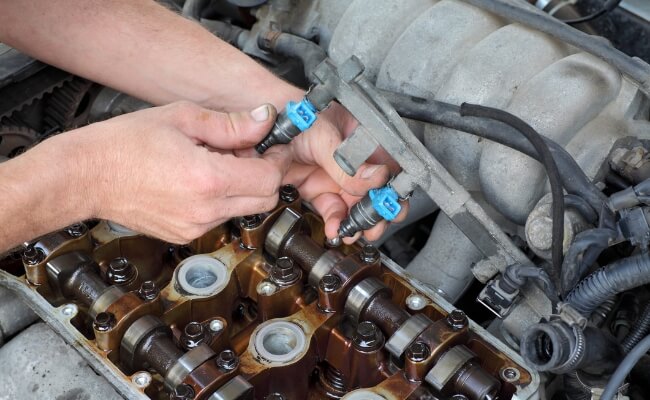
If your car’s fuel system is the cause of vibration or hesitation when accelerating, it may need to be repaired or replaced. This may include repairs to the fuel pump, injectors, or fuel lines. This is a more complex repair that should be done by a professional mechanic.
The cost of fuel system repairs can vary depending on the extent of the damage and the make and model of your car.
Is It Safe To Drive Engine Stuttering When Accelerating?
If you notice that your engine is stalling, you must have your car checked by a mechanic as soon as possible. There can be several reasons why your engine is stalling when accelerating.
The cause could be a faulty ignition or the fuel system, a mechanical problem with the engine, or something else entirely. The easiest way to avoid stuttering is to drive at a constant speed and match the speed of your steering wheel to the movement of the throttle.
This makes it easier for your wheels to spin and maintain a steady, steady speed. Another option is to slow down on the accelerator when you are not accelerating.
If you don’t want to wait for the engine to warm up, let it idle for a few minutes before driving, or engage the idle and start driving downhill.
Top FAQs About Why Is My Car Bucking When I Accelerate
Why does my car jerk when I lightly accelerate?
If your car jerks when accelerating, there could be a number of reasons. The first reason is that the accelerator pedal is not positioned correctly. The second reason is that the throttle cable is too tight or too loose.
The third reason could be a problem with the throttle position sensor or a problem with the idle air control motor or idle speed control valve.
What is car jerking when driving?
A trembling car or a stuttering engine can be an indication that something is interfering with the correct distribution of power. There are a number of possible problems and causes including tires with excessive tire wear, a warped wheel due to a chipped tire or scratched hubcap, worn brakes or brake pads, worn transmission bearings and seals, dirty fuel in the injectors, stuck valves, etc what not.
Can a clogged catalytic converter cause jerking?
Yes, when the catalytic converter is not working properly, the air and fuel can mix unevenly, leading to a stuttering or jerky feeling when accelerating. To diagnose a clogged or faulty catalytic converter, have your vehicle inspected by a professional.
What causes a car to jerk suddenly?
There are various reasons why your car vibrates when you accelerate. It can be due to dirty injectors, a clogged catalytic converter, a faulty fuel pump, a faulty mass air flow sensor, cracked spark plugs, or even a buildup of moisture.
If it is just a little dirt or moisture, it is best to clean the affected areas and apply any necessary lubricant.
Is it normal to drive a car jerking when accelerating?
You can, but we don’t recommend it. Depending on the severity of the problem, you may still be able to operate the vehicle with some faults.
However, it would be wise to quickly identify and fix the problem. As mentioned above, the problem could affect your driving ability and put you in danger.
Final Thought
If your car jerks when accelerating at low speeds or on the highway, this could be due to a number of problems. They must be checked immediately to prevent engine or transmission damage and also expose occupants to dangerous road conditions.
We strongly encourage you to fix these issues as they are very serious, either because the parts are nearing the end of their useful life or something else is causing early damage.







